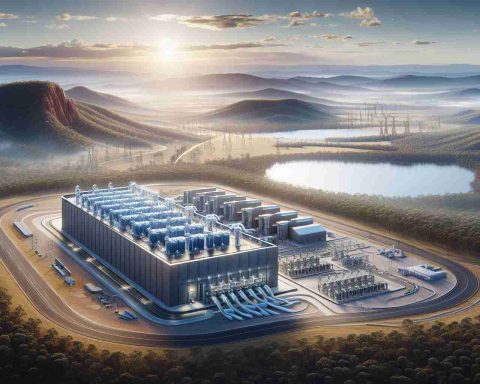Canoo’s Closure and Legacy
In a surprising turn of events, the electric vehicle start-up Canoo has announced it will be shutting down operations immediately due to bankruptcy filing. Established in 2017 originally as Evelozcity, the company aimed to revolutionize the automotive industry with its innovative designs and unique business model.
Canoo managed to create several exciting electric vehicles, including a utility vehicle and van, securing contracts with notable organizations like NASA, the US Department of Defense, and the US Postal Service. However, despite these achievements, only the Canoo Lifestyle Vehicle made it to public deliveries, which were slated to start at the end of 2023.
As the electric vehicle landscape became increasingly competitive, Canoo faced significant financial setbacks, with a multi-million-dollar loss reported in early 2022. The company struggled to raise the necessary capital amid a shifting market, ultimately leading to its inability to secure funding from the Department of Energy’s loan program.
In a final attempt to stabilize, Canoo executives explored various foreign investment options that ultimately fell through. Following this, the board made the difficult decision to file for Chapter 7 bankruptcy, initiating liquidation procedures to manage creditors’ claims. A federal bankruptcy trustee will soon oversee the process, marking a poignant end to Canoo’s ambitions in the electric vehicle sector.
The Ripple Effects of Canoo’s Closure
Canoo’s abrupt bankruptcy not only signifies the collapse of an ambitious electric vehicle (EV) start-up, but it also serves as a stark reminder of the volatility within the EV sector. As the market strives to embrace sustainable technologies, the failure of such companies can hinder broader efforts to transition to a more eco-conscious economy. The race toward electrification must contend with the sobering reality that innovation does not always translate into commercial viability.
The closure impacts the broader automotive ecosystem. With Canoo’s ties to federal entities like NASA and the U.S. Department of Defense, its departure raises concerns regarding the future of government contracts with new entrants in the EV space. The market could tighten, leading to increased caution among potential partners who may now hesitate to engage with startups lacking proven track records.
Moreover, the environmental implications of Canoo’s failure extend beyond the company itself. As supply chains associated with their projects dissolve, the loss of potential EV development means missed opportunities in reducing emissions and advancing cleaner technologies. The transition to electric vehicles is critical in the fight against climate change, and setbacks like Canoo’s slow this momentum.
Looking ahead, industry consolidation seems inevitable. As consumer demand for electric vehicles grows, only a few entrenched players with deep pockets may survive. This reality could stifle innovation, as smaller, potentially disruptive firms struggle to compete. Ultimately, Canoo’s demise highlights a crucial juncture for the EV industry, urging stakeholders to reassess the dynamics of innovation, investment, and sustainability within an ever-evolving global landscape.
What Does Canoo’s Closure Mean for the Future of Electric Vehicles?
Canoo’s Closure and Its Impact on the EV Market
The abrupt shutdown of Canoo, an electric vehicle (EV) start-up, has sent ripples through the automotive industry, raising questions about the future of emerging players in the EV space. Despite the unfulfilled promise of innovative vehicles like the Canoo Lifestyle Vehicle, the company’s exit from the market highlights critical lessons and potential implications for the broader electric vehicle landscape.
Pros and Cons of Canoo’s Business Model
Canoo’s unique subscription model, which focused on offering flexible vehicle usage without long-term ownership commitments, came with both benefits and drawbacks:
# Pros:
– Flexible Ownership: The subscription service allowed users to adapt their vehicle choices to their lifestyle needs, potentially appealing to urban consumers.
– Innovative Designs: Canoo aimed to disrupt conventional vehicle designs with products like its Lifestyle Vehicle and multi-purpose delivery vans.
# Cons:
– Financial Sustainability: The subscription model faced challenges in carving out a profitable niche amidst fierce competition from established automakers and other EV start-ups.
– Market Maturity: As a relatively new entrant, Canoo struggled to gain traction in a market that quickly matured and became crowded with established brands and newer competitors.
Comparisons with Other EV Startups
Canoo’s journey parallels that of other EV startups like Rivian and Lucid Motors, which have also experienced financial hurdles:
– Rivian: Known for its R1T pickup and R1S SUV, Rivian garnered substantial funding and public interest, successfully launching products despite facing production challenges.
– Lucid Motors: Unlike Canoo, Lucid has received acclaim for its luxury EV offerings but similarly faces scrutiny over production timelines and profitability.
Future Trends in the EV Market
Canoo’s closure serves as a warning for future EV startups, underscoring the importance of sustainable business practices and robust financial backing:
– Focus on Profitable Models: New companies may need to adopt more traditional sales or financing models while diversifying offerings to stabilize revenues.
– Investment in R&D: Continued innovation, especially in battery technology and sustainable materials, will be crucial for new entrants seeking to make an impact.
Lessons from Canoo’s Closure
The fallout from Canoo provides invaluable insights for upcoming ventures in the EV sector:
1. Capital Acquisition: Startups must prioritize achieving financial stability early and securing diverse funding sources.
2. Consumer Demand Understanding: A deep comprehension of market needs and consumer preferences is necessary to avoid misalignment that can lead to failure.
3. Strategic Partnerships: Collaborating with established companies can provide the resources and market knowledge new companies lack.
Conclusion: The Road Ahead for Emerging EV Manufacturers
Canoo’s unexpected shutdown sheds light on the precarious nature of the EV startup landscape. As the industry evolves, the success of future companies will depend on their ability to navigate financial challenges, innovate continuously, and meet the demands of a rapidly changing market. The electric vehicle landscape may be daunting, but those who can adapt and learn from past failures will pave the way for the next generation of automotive innovation.
For more insights into the unfolding world of electric vehicles and industry trends, visit electrive.com.









